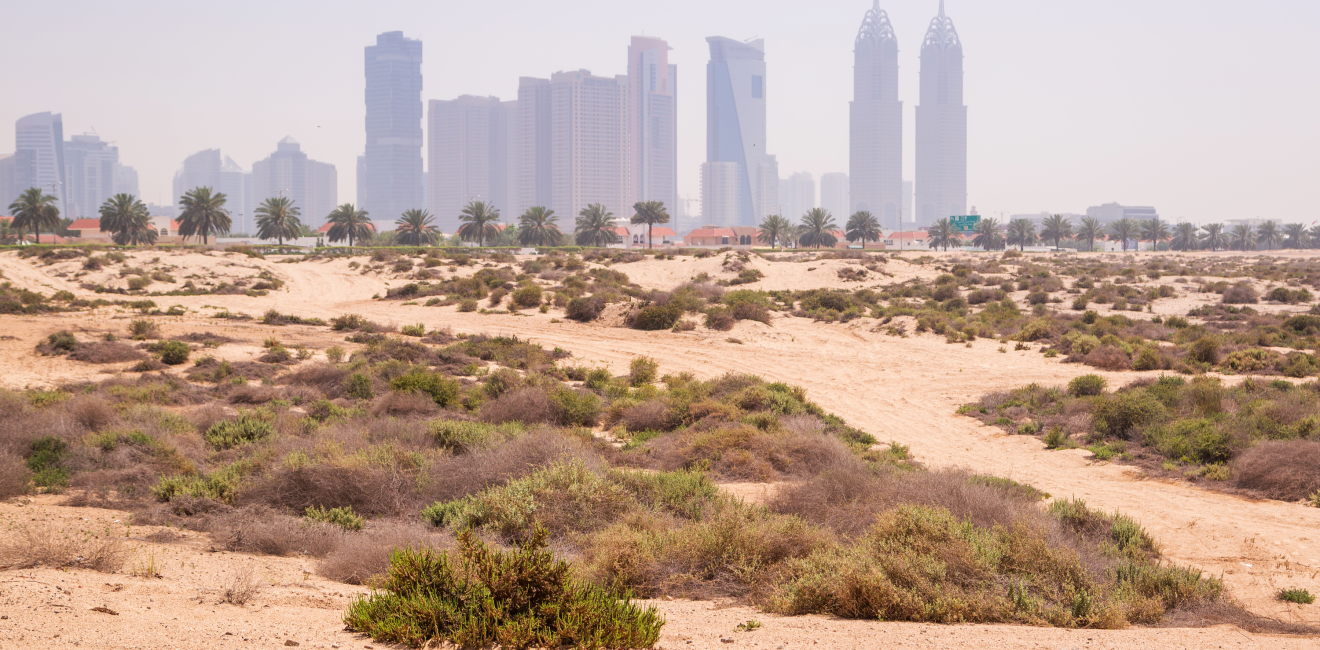The six monarchies of the Arabian Peninsula— in alphabetical order Bahrain, Kuwait, Oman, Qatar, Saudi Arabia, and the United Arab Emirates —are conspicuously hostile to political organizations that seek to give citizens a voice in public affairs. Even as they seek ways to allow a semblance of political participation in order to “modernize” their political systems, most of them continue to ban political parties and seek to make politics a competition among independent candidates, thus limiting the possibility of real challenges to the ruling families. Yet political organizations seek to form and will continue doing so.
Even Kuwait, the most democratic of the six countries with an independent albeit dysfunctional parliament that pushes the country to perpetual political instability, does not have true political parties. At the other extreme, Saudi Arabia only allows limited political participation at the municipal level and bans all political organizations. The other Gulf countries fall between these two extremes.
Discussing political parties in the Gulf thus may look like a futile endeavor, but in reality, it yields some interesting insights on the evolution of authoritarian political systems based on inherited family rule.
Discussing political parties in the Gulf thus may look like a futile endeavor, but in reality, it yields some interesting insights on the evolution of authoritarian political systems based on inherited family rule. The first lesson is that such systems at present feel under considerable pressure to allow a degree of political participation because they realize that absolute rule by royal families looks hopelessly outdated in the eyes of the world. The goal of these rulers in not democracy, but more presentable authoritarian systems. The second lesson is that as soon as the door is open to political participation in any form, parties begin to emerge, even if they are not allowed and rulers seek to repress them. The rulers in this case are unlikely to succeed—a lesson learned in the United States when parties endured despite George Washington’s warning in his farewell address that they were dangerous because they sought power for themselves and revenge against other organizations.
Paradoxically, while the role of political parties is ebbing in many countries of the Middle East and North Africa region and some are even abdicating their roles, as in Egypt, new ones are struggling to emerge in the Arab countries of the Gulf.
The Rise of Representative Government
Representative government is an adversarial process: a struggle by some groups in the society to limit the untrammeled power of rulers. This form of government has historically evolved not from theories or principles, but from the necessity to accommodate real political forces that rulers could not eliminate—the 13th century magna carta was a reluctant concession by the English king to rebellious barons. In a remarkably similar process, the Kuwaiti parliament has its distant origin in an agreement in the 18th century between the emir and powerful merchant families. And in what is now Saudi Arabia, Mohammed bin Saud, the ruler of the first Saudi state, entered into a pact with religious leader Mohammed Ibn Abd Al-Wahab in 1774, recognizing the latter’s authority over religious matters in exchange for needed political support. The pact was renewed after the establishment of the present Kingdom of Saudi Arabia but is now being dismantled by Crown Prince Mohammed Bin Salman. But in some of the Arab countries of the Gulf, limited participation is now offered from the top, rather than being demanded by strong political forces from the bottom.
Kuwait
The initial deal between merchant families of Kuwait town and the emir gave rise to an endless tug of war between them, which became particularly acrimonious in the early part of the 20th century, as the city-state evolved into an oil-producing British protectorate that included much larger tribal areas. In 1939, the merchants’ council tried to extend its authority over oil production and the army. In response, the emir dissolved the council. Flush with oil revenue, the ruling al-Sabbah family thought it no longer needed the merchants.
Independence from the British in 1961 showed this was not the case. Iraq immediately claimed historical rights to the territory of Kuwait. Seeking to bolster his legitimacy and popularity, the Kuwaiti emir issued a constitution that vested executive power in the al-Sabbah family and legislative power in a new elected 50-member parliament. This move expanded political participation, although women did not have the right to vote and many inhabitants, known as the Bidoon, remained a caste of non-citizens without civil or political rights.
The new system was characterized by a built-in tension between the al-Sabbah, whose power was not subject to popular control, and the elected parliament. The main goal of both elected MPs and the ruling family controlling the executive appeared to be less about governing the country and steering the development made possible by oil wealth than scoring points against each other. No sooner was a parliament elected and a new government formed that the parliament sought to undermine it by holding what in other countries would be called “hearings,” but in Kuwait are tellingly referred to as “grillings.” In response, the emir repeatedly disbanded the parliament before its term had expired. Most often new elections were held right away, but in 1986 the constitution was suspended in the face of mounting opposition in the assembly and was not reinstated until 1992, at the insistence of the United States and other members of the international community that had liberated Kuwait after the 1990 Iraqi invasion. Unfortunately, the system remained dysfunctional.
The Kuwait system functions without official political parties, but they are emerging de facto despite the small size of the electorate. Kuwait has only 1.3 million citizens, out of a total resident population of about 4.5 million people, the majority of whom are migrant workers. In recent elections, it had fewer than a million registered voters. Yet interests are diversified enough for numerous blocs to form in the lead up to elections and in parliament, even if most candidates run as independent. Outsiders trying to understand politics in Kuwait are often struck by the degree of intense interest, even enthusiasm, about this political game that appears without real consequences except for those who are playing it. “Kuwait,” as an American analyst who shall remain unnamed once commented to me, “is a nation of political junkies.”
Kuwait is certainly far from having a system in which political parties perform the function of building constituencies around a project and representing the interests of those constituencies.
The most important blocs that have emerged in the no-party Kuwait system are the Islamists, including the Muslim Brotherhood-oriented Islamic Constitutional Movement and Shia organizations. All of them have been highly pragmatic and are thus tolerated by the ruling family even when they advocate political reform. Perhaps more unexpectedly, tribes have become an important component of the opposition, rather than remaining loyal to the al-Sabbah family as so-called “service MP’s” supporting the government in exchange for jobs for members of their tribe. Instead, tribes have started playing a more independent role, organizing so-called “tribal primaries” to choose their candidates. Kuwait is certainly far from having a system in which political parties perform the function of building constituencies around a project and representing the interests of those constituencies. Yet the logic of elections and representation is spurring interest groups to organize in pursuit of their goals.
Bahrain
In Bahrain as in Kuwait, royal absolutism is marginally tempered by the existence of an elected assembly, but while Kuwait’s system is dysfunctional yet relatively benign, Bahrain’s is strongly repressive. As a result, interest groups appear to be less organized, although Bahrain officially recognizes the existence of political “societies,” which are de facto parties.
Bahrain became an independent country in 1971, when the British government withdrew from the Arabian Peninsula. The new State of Bahrain in 1973 issued a constitution that left executive power in the hands of the al-Khalifa family but called for the election of a National Assembly at universal male suffrage, and immediately held the first election. Two years later, the emir dissolved the assembly and took legislative power back in his own hands.
The country was too divided for stability to prevail. Bahrain sits on a Sunni-Shia fault line, with the al-Khalifa ruling family being Sunni with about 70 percent of the population Shia. Opposition groups started organizing immediately after independence, including the Shia Front for the Liberation of Bahrain, which in 1981 allegedly attempted to carry out a coup d’état. This led to a period of intense instability and repression against Shia leaders, many of them clerics. Sunni-Shia relations were complicated by Sunni perception that Shia were a front for Iran, which had at times controlled the island.
Trying to quell the unrest, in 1992 the emir introduced a Shura Council, but the problem continued. In 2001 the emir went one step further, issuing a National Action Charter and a new constitution, which called for the formation of a National Assembly comprising a 20-seat appointed Shura council and a 20-seat Chamber of Deputies, elected at universal suffrage. At the same time, the State of Bahrain became the Kingdom of Bahrain, self-defined as a constitutional monarchy but in reality, one where the king, and the royal family, governed as well as ruled.
The veneer of democracy of the new system did little to heal the fundamental rift that tears Bahrain apart. Real power remains in the hands of the Sunni king, who is supported by the appointed shura council, dominated by Sunnis and supportive of the ruling family—even the Muslim Brotherhood, a main challenge to most Gulf Arab royal families, support the monarchy in Bahrain. For the Shia population, largely represented by the Al-Wifaq political society, the new system posed a dilemma of whether or not to participate, since they could never have real power. Al-Wifaq, as a result went back and forth between boycotting some elections and participating in others, winning most of the elected seats when it did so but never gaining enough power to challenge the system in place.
In 2011, Bahrain exploded as did many other countries in the Arab world, but the conflict again became a sectarian one. It also became internationalized, with Saudi Arabia sending troops across the causeway linking the island to mainland to help restore order and prevent a possible intervention by Iran.
The repression of the uprising was fierce, to the point where the king had to acquiesce to the establishment of an independent commission of inquiry that included foreign experts. The commission issued a report critical of the way in which authorities had handled the unrest, issued many recommendations, and was largely ignored by the authorities. The impact on the political life of the country was devastating. Al-Wifaq society emerged much weakened, many of its leaders imprisoned again, some receiving life sentences. Political space for civil society and political societies not aligned with the ruling family closed even further. An attempt in 2014 by the crown prince to launch a national dialogue did not achieve results, and Al-Wifaq and other groups boycotted subsequent elections.
Despite the harsh restrictions, the authorities have not succeeded in eliminating political organizations and forcing political life to remain within the narrow confines of what the constitution allows.
Despite the harsh restrictions, the authorities have not succeeded in eliminating political organizations and forcing political life to remain within the narrow confines of what the constitution allows. The extremely limited representative government system defined by the constitution cannot address the deep sectarian schism in the country. Organized political life thus continues outside the legal framework, with no end in sight to the impasse.
UAE, Qatar, and Oman
Political life in the other three small Arab countries of the Gulf is extremely limited and only a few comments are necessary.
Qatar, which has one of the world’s highest GDPs per capita thanks to the export of gas, has a population of just over 300,000 that appears, at least for now, content with the status quo and not trying to challenge the al-Thani family’s rule. In turn, the family so far does not appear to feel the need to demonstrate to the world that it is opening its political system. Instead, the emir tries to play a role in international affairs disproportionate to the size of the country, mediating conflicts and hosting negotiations such as the recent one between the Taliban and the Afghan government. But Qatar’s relations with its neighbors, particularly Saudi Arabia and the United Arab Emirates, are difficult, partially because Qatar is friendly with the Muslim Brotherhood, which the others abhor. These tensions, however, do not seem to have significant political repercussions. Domestic political life is practically non-existent.
The United Arab Emirates offers a more interesting story. The country, a federation of seven emirates each governed by its own autocratic ruling family, has been engaged for many years in a successful project to modernize and diversify its economy and thus make it less dependent on oil. In 2006, it also launched a carefully controlled attempt to give its political system a veneer of modernity, probably in the hope of making its system more acceptable in the eyes of the world and to preempt the possibility of future unrest. Thus, it decided to allow elections for its Federal National Council, an advisory body with extremely limited power. The FNC is composed of representatives of all seven emirates that constitute the UAE, with the number proportional to the size of each emirate’s population. The representatives used to be appointed, but this changed in 2006.
The authorities did not rush into elections. Instead, each emirate chose its own process for selecting a small number of citizens that would be allowed to vote. The public never learned how voters were selected in the different emirates, but the reaction appears to have been more puzzlement and amusement than real anger—a common joke was that in the UAE the government elected the voters, rather than the voters electing the government. The number of voters was initially very small—only about 6,500 voted in the first election, but the number increased with each successive election. In 2019, there were 337,000 registered voters (but only one third of them actually went to the polls), and most assume that the franchise will eventually be universal. Political parties are not allowed and so far, none have emerged, with the government keeping a close eye on any possible political activity, particularly by Muslim Brotherhood sympathizers which are seen as a dangerous subversive force.
It is difficult to judge whether the authorities have gained any benefits from this carefully controlled foray into representative government. It has been received with very little interest outside the country, with almost nothing being written about it, and as far as outsiders can judge even citizens have remained largely indifferent, as seen by the low voter turnout. Perhaps the most interesting aspect of this experiment is that the government felt it needed to do it even if it was not under pressure.
Oman deserves more attention because the authorities are under some pressure from a dissatisfied public. Superficially, it is a typical authoritarian sultanate, in which all citizens over 21 years of age have had the right to vote for a powerless shura council and can even organize political parties. After thirty uneventful years during which the population appeared to be fairly content despite the very limited nature of its political rights, the situation may be changing. Sultan Qaboos bin Said died in 2020 after a 50-year reign. The succession was smooth, but there are signs of growing unrest among the young population, with frequent small-scale protests and demonstrations, primarily demanding jobs and better services. A relatively poor country with limited oil resources, Oman does not enjoy the high standard of living of its neighbors and cannot keep the lid on discontent by showering its citizens with largesse. This is an Arab country of the Gulf where the demand for more participation may well surpass the limited supply offered by the authorities. Oman may very well face a political crisis in the future that is likely to turn into an adversarial process. This would encourage the formation of political organizations.
Saudi Arabia
Saudi Arabia remains the only Arab country of the Gulf that has not introduced a degree of popular participation in governance, neither by taking cautious and largely symbolic steps from the top, like the UAE, nor by being forced to make some concessions because of pressure from the bottom.
Other than setting up partially elected municipal councils beginning in 2004, Saudi Arabia has continued to exclude any form of participation by citizens.
Other than setting up partially elected municipal councils beginning in 2004, Saudi Arabia has continued to exclude any form of participation by citizens. Its shura council remains totally appointed and no form of political organization exists.
Crown Prince (and de facto ruler) Mohammad bin Salman seems to be moving toward even greater royal absolutism by decreasing the role of the clerical establishment, which, as mentioned, has enjoyed control over religious and social life in exchange for political quiescence. He has curtailed the power of the Committee for the Promotion of Virtue and the Prevention of Vice, the Islamic police that strictly enforced rules of dress and behavior and has encouraged forms of entertainment, including concerts and sports events, of which the religious establishment disapproves. These changes are extremely popular with young people chafing under restrictions that were extreme even by the standards of the region. But by curbing the role of the clerical establishment, the crown prince has made his own power even more absolute. For better or for worse, the clerical establishment represented a countervailing force to the monarchy, while the young people who applaud the reforms are simply beneficiaries of decisions from the top, without any way of influencing them. The most dramatic example is that the crown prince has finally decided that women should be allowed to drive in Saudi Arabia, but he had also ordered the arrest of women who were publicly advocating that right and keeps some of them in prison. Change, in other words, is given from the top and cannot be demanded.
Saudi Arabia is moving toward even more unrestricted power for the royal family at a time when most countries in the region are trying to at least present a façade of gradual political reform and openness.
Conclusions
Muslim Brotherhood-oriented organizations are seen by many rulers, particularly in Saudi Arabia and the UAE as particularly dangerous: their ideal of an Islamic government is political, not religious.
This discussion of the politics of the different Arab countries of the Gulf has moved quite far from the issue from which it started, that of the problem of political parties. Most countries do not have political parties and do not want them. There are two major reasons for this: first, the ruling houses are extremely leery of political participation that could threaten their control; even those who find it important to project an image of participation seek to restrict it to individuals rather than organized political groups—hence the restriction on political parties and even some organizations of civil society. The second and equally important reason is that in the current ideological climate of the region, political organizations would not form around political programs but around religious or tribal identity—the late King Abdallah in Saudi Arabia argued that if parties were allowed in his country, each tribe would form its own. As for religion, rulers cast themselves as defenders of Islam, but they want to be the ones to define it and are afraid of any organization using Islamic ideas to gain support. Muslim Brotherhood-oriented organizations are seen by many rulers, particularly in Saudi Arabia and the UAE as particularly dangerous: their ideal of an Islamic government is political, not religious. But at present, it is difficult to imagine how political organizations could form in the region that are not centered on religious or tribal identities. After the death of Egyptian President Gamal Abdel Nasser, the extremely popular secular ideology of Arab nationalism waned, and no alternative emerged.
Despite the obstacles the rulers put in the way of organized political life and their efforts to keep the limited participation allowed from turning into an adversarial process, political organizations still seek to emerge. The ideal of a political process without political parties that rulers would like, much as George Washington did two and a half centuries ago, appears doomed to failure: people seek to come together to pursue their interests.
Political parties, as previous papers have shown, are in trouble in many Arab countries. The struggle for their emergence under extremely unfavorable conditions in the Arab countries of the Gulf shows that they are an inevitable part of political life.
The views expressed in these articles are those of the author and do not reflect an official position of the Wilson Center.
Author
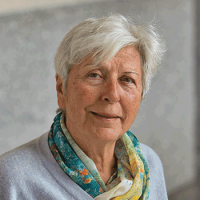
Former Senior Research Associate and Head of the Middle East Program, Carnegie Endowment for International Peace

Middle East Program
The Wilson Center’s Middle East Program serves as a crucial resource for the policymaking community and beyond, providing analyses and research that helps inform US foreign policymaking, stimulates public debate, and expands knowledge about issues in the wider Middle East and North Africa (MENA) region. Read more

Explore More
Browse Insights & Analysis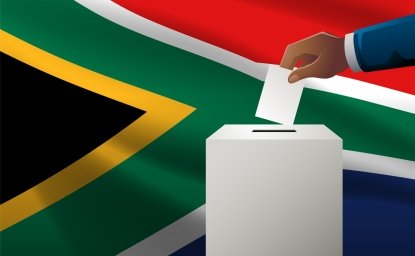
Change in the Ballot Box in Africa
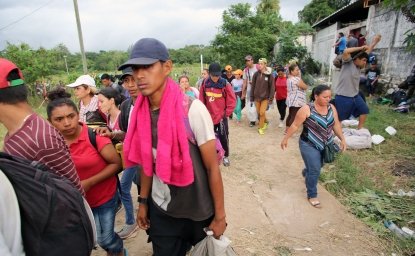
You Can’t Deport Your Way Out of the Problem
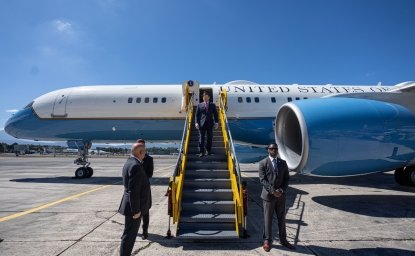
US Ties Its Hands in Fight Against Organized Crime

